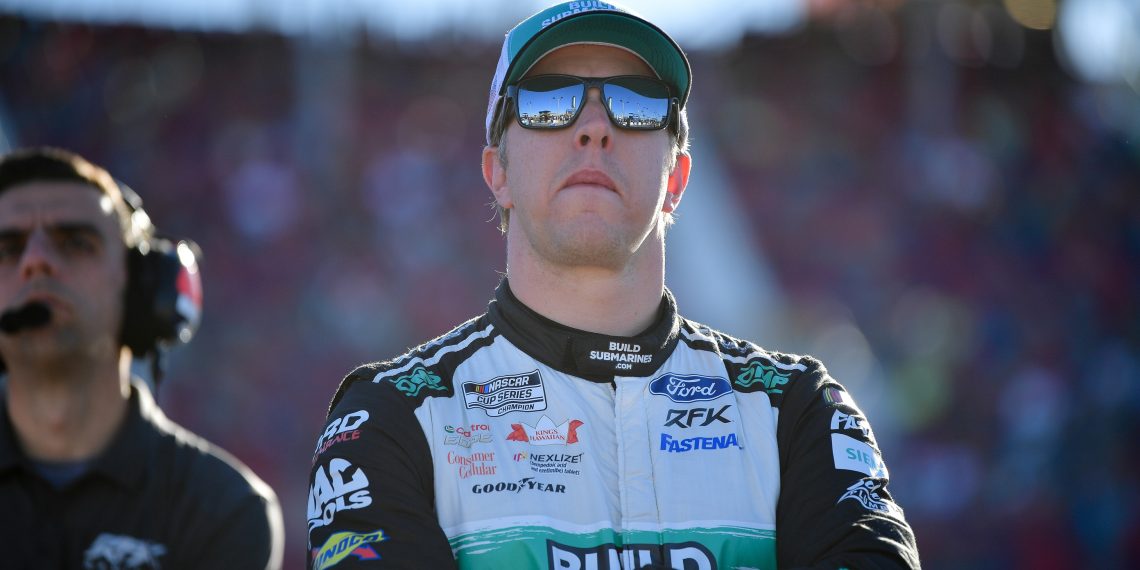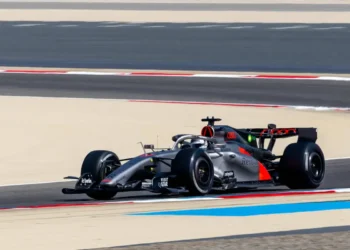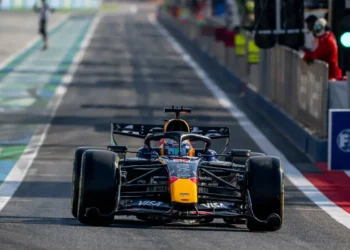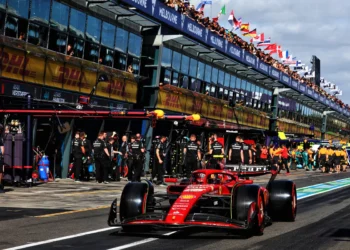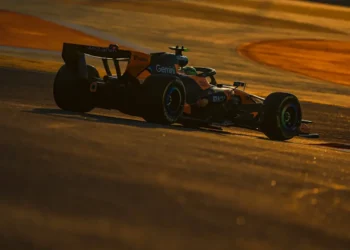Brad Keselowski, one of NASCAR’s most dynamic figures, has carved out a remarkable legacy as both a driver and team owner. From his 2012 NASCAR Cup Series championship to his bold leap into team ownership in 2022, Keselowski’s journey has been nothing short of transformative. But as RFK Racing gears up to expand to three full-time charters in 2025, Keselowski’s recent revelations suggest his motivations might be more complex than they appear.
The “selfish” truth behind Keselowski’s ownership journey
Keselowski stunned the NASCAR world when he became a driver-owner by joining Roush Fenway Racing and rebranding it to Roush Fenway Keselowski Racing (RFK Racing). His transition wasn’t just about chasing victories or expanding his influence—it was about ensuring he remains part of NASCAR for the long haul. Speaking on the Business of Motorsports podcast with Kelley Earnhardt Miller, Keselowski candidly admitted:
“The thing about being a race car driver is you know it ends pretty quickly… Being a team owner allows me to selfishly be a part of this sport for however long I want. Whenever my day with this sport is done, being a team owner allows me to make that decision—not the sport.”
In a world where drivers face increasingly shorter careers, Keselowski’s decision offers him control over his destiny. At 39, he’s acutely aware of NASCAR’s harsh realities: the constant influx of young talent, grueling competition, and the physical demands that inevitably push veterans out of the driver’s seat.
Dale Jr.’s echoes: Post-retirement blues
Keselowski isn’t the only veteran grappling with life beyond the wheel. Dale Earnhardt Jr., a NASCAR Hall of Famer and team owner himself, has publicly reflected on the void retirement created. Despite embracing his first year away from full-time racing in 2017, Earnhardt admitted:
“I was so glad to be out of the grind, but each year it’s gotten worse.”
Both Keselowski and Earnhardt Jr.’s experiences highlight a shared fear among elite athletes: losing their connection to the sport they’ve dedicated their lives to.
RFK Racing: From struggles to triumphs
Keselowski’s ownership tenure hasn’t been without challenges. RFK Racing struggled to find its footing initially, with Keselowski enduring a three-year winless streak. But in 2024, he silenced critics with a triumphant victory at Darlington Raceway, marking a personal and professional milestone. The team’s progress was also reflected in Chris Buescher’s 2022 victory at Bristol Motor Speedway, RFK’s first win under Keselowski’s co-ownership.
Heading into 2025, RFK Racing’s trajectory looks promising. The team is set to expand to three full-time cars, fielding Ryan Preece in the newly acquired No. 60 Ford from Stewart-Haas Racing. This move underscores Keselowski’s commitment to growing RFK Racing into a powerhouse in the NASCAR paddock.
Longevity or desperation?
Critics might argue that Keselowski’s ownership role is a desperate attempt to stay relevant, but his track record suggests otherwise. RFK Racing has steadily improved under his leadership, with both cars qualifying for the playoffs in consecutive seasons. Moreover, his candidness about the “selfish” motivation behind his ownership underscores his deep love for NASCAR and his determination to contribute beyond his driving career.
The road ahead
As RFK Racing embarks on a pivotal season with three cars in its stable, Keselowski’s dual role as a driver-owner will remain under scrutiny. But if his past resilience is any indicator, the 2025 season could mark another chapter in a career defined by defying expectations.
Will Brad Keselowski’s ownership gamble pay off and secure his legacy, or will the pressures of expansion and competition prove too much? Only time will tell, but one thing is certain: Keselowski isn’t backing down.

